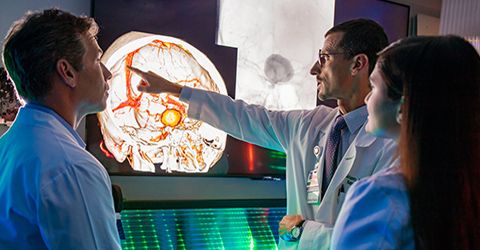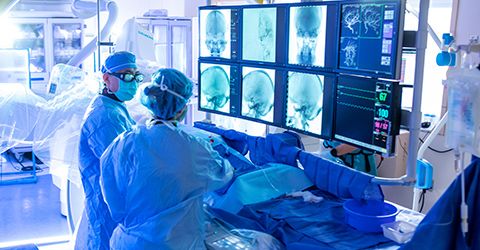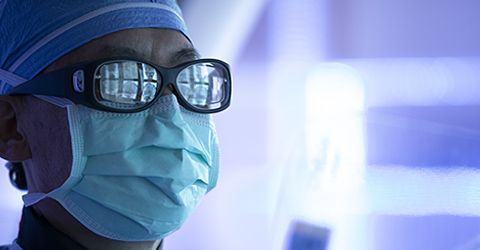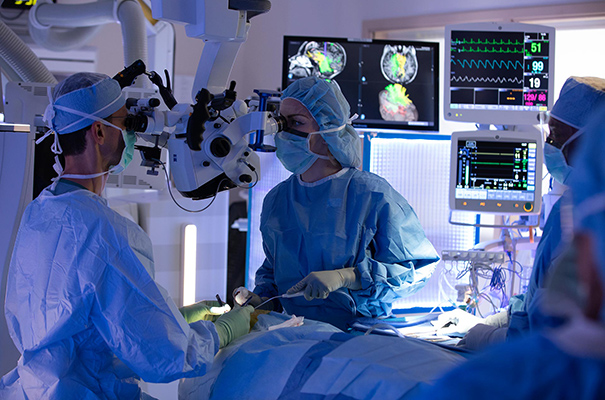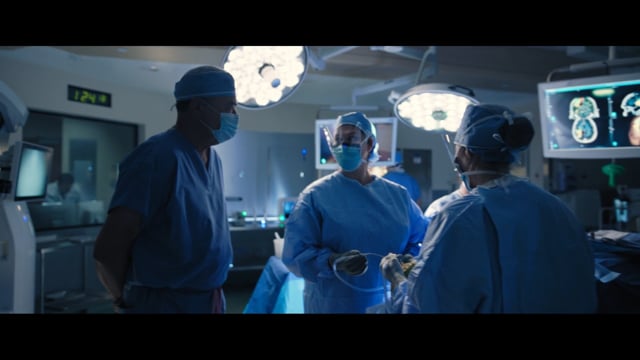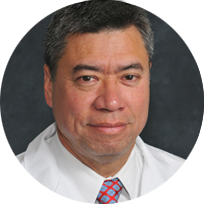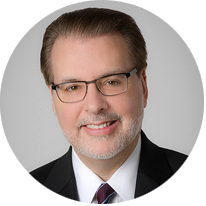At Tampa General Hospital’s Neuroscience Institute, we offer a full spectrum of care for neurological problems and provide comprehensive treatment for children and adults affected by a neurological disorder or disease. We are dedicated to treating even the most complex neurological issues, and our renowned expertise leads doctors throughout the country to refer their patients to us. Our 32-bed neuro ICU is one of the largest on the West Coast of Florida, with a team of physicians who specialize in treating neurological conditions, supported by a robust staff of specially trained and certified nurses, technicians and other medical team members.
As a nationally recognized institute, we provide more neurological services than anyone in the region. Tampa General also features the second busiest functional neurosurgery program in the U.S. and we’re one of the most trusted centers in the country for the medical and surgical treatment of disorders of the cranial nerves.
Tampa General Hospital is ranked in the top 10% in the nation for Neurology & Neurosurgery by U.S. News & World Report for 2024-25. TGH was also named one of the top hospitals in the country for Stroke care by U.S. News & World Report. In addition, we have also earned placement on Newsweek’s World’s Best Hospitals 2024 list.


